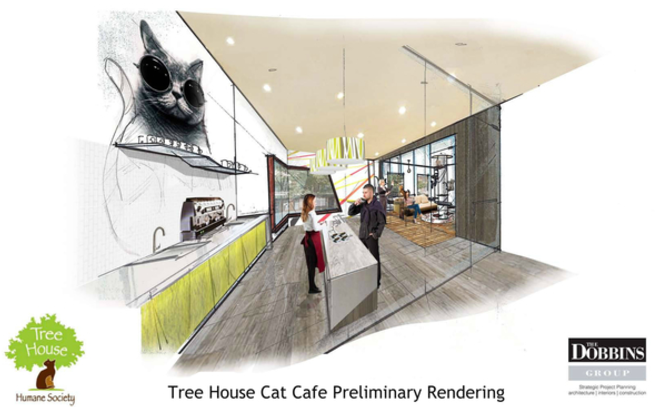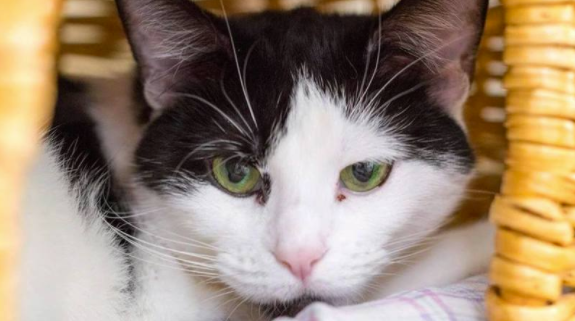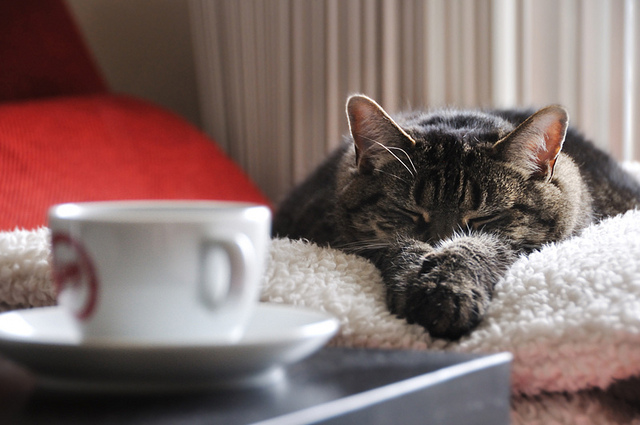When Chicago’s first cat cafe at Tree House Humane Society’s new multi-million dollar shelter in Rogers Park holds a ribbon cutting ceremony on Friday and opens its doors to the public on Saturday, a small group of protesters with cat-titude will be waiting.
Tree House, a non-profit organization founded in the ’70s, is dedicated to “the rescue, rehabilitation, and adoption of sick, injured, abused, and neglected cats,” according to its website. But protesters are alleging that Tree House has departed from that mission in recent months. Their charges against Tree House include donor fraud, censorship, and feline murder—and they’ve generated a petition begging the shelter to change its ways with 1,000-plus signatures. Not to mention, the cat cafe is far less impressive than originally planned.
Here’s how it all went down.
The Honeymoon Period
In 2015, Tree House Humane Society—an Uptown-based cat shelter long beloved for its cageless, no-kill model—announced plans to open a new facility on Western Avenue in West Rogers Park. The $7 million, 15,000-square-foot space was to include an in-house clinic, cat-friendly room designs (dubbed “catios”), and an education center meant to promote pet-related causes.
But most glamorously, initial plans for the shelter included a full-service cat cafe, outfitted with a full coffee bar and organic, fair-trade coffee—the first of its kind in Chicago, and one of the first U.S. cat cafes to house adoptable cats. The Chicago cat community went into ecstasies, and Tree House raised more than $5 million by 2016, according to DNAinfo. Construction began in June 2015, with an opening planned for fall 2016.

Trouble Brewing
By mid-2016, the shelter’s plans appeared less than purrfect as the project soared $1 million above budget and several staffers resigned, alleging mismanagement.
According to the Chicago Tribune, Tree House hired a local law firm to investigate the matter and found “no illegal activity, but questionable management practices.” The board of directors declined to specify the findings to the Trib, but ended up firing three top staffers. Longtime board member Steve Dale resigned in protest of the firings, and at least one donor pulled a $35,000 donation.
The shelter hired current interim executive director Kerri Burns and plans for the adoption center (including the cat café) continued, albeit on a delayed schedule.
The Final Straw
Discontent came to a head almost a year later—in June of this year—when word broke that Tree House planned to euthanize a cat named Little Miss Solid Gold, who had bitten a shelter volunteer and shown repeated signs of “severe” aggression, Burns told DNAinfo.

That’s when the first protest happened. Leona Sepulveda, a former Tree House staffer who left last year for personal reasons, helped organize a handful of people who showed up to the facility. According to Sepulveda and the DNAinfo report, several individuals and organizations offered to take the cat, but Tree House said that it could not “in good conscience, safely place her in any human environment.”
Shelter officials noted that it was not the first time they had euthanized an animal due to behavioral problems, though it is quite rare. “The decision is made based on the cat's prognosis and quality of life going forward,” the shelter wrote in a June 14 Facebook post. “Sometimes there simply are no good options. Our mission has not changed.”
This Weekend’s Protests
In the days following Little Miss Solid Gold’s euthanization, screenshots show that Tree House removed the phrase “no-kill” from its mission statement. A group of horrified volunteers and donors—many of whom supported Tree House specifically for its no-kill mission—formed an informal organization called Not My Tree House, which plans to stage Friday and Saturday’s demonstrations.
In an online petition with more than 1,200 signatures, they accuse Tree House of committing fraud by accepting donations and volunteer hours as a “no-kill” shelter. The petition demands that board members and current leadership step down. In lieu of that, Not My Tree House hopes the board will open its meetings to the public.
“If they’re going to make big decisions to fire their directors and restructure their mission statement and their image and culture, they need to do it in a better way,” Sepulveda says. “Don’t do it and then disregard your supporters and silence them.”
And What About That Cat Café?
Facing budget issues, the shelter scaled back its plans for a full coffee bar and will instead provide self-serve coffee in a room separate from where visitors will be able to socialize with the cats. “The reality of the space came to bear,” says Deborah Hinde, Tree House’s director of development. “We had to decide, how much space do we want to be cafe and how do we maximize the space?”
Hinde emphasizes that the new facility is focused on finding homes for cats. “This building was a difficult project but the fact is, there are already cats here and 60 have already been adopted… The facility will just make it even easier,” she adds.
But there’s still hope for Chicagoans who dream of petting cats while consuming beverages. Jennifer Tiner, a former volunteer at Tree House, is currently raising money to open her own feline-focused Lincoln Park coffee shop, Windy Kitty Cat Cafe, which she says will offer coffee service, tables, chairs, and kitties all in one space. “When people think of a cat cafe, that’s what ours will be like,” Tiner explains.
Another cat-themed locale, the Catcade, hopes to open this fall. The space will purportedly feature arcade games, a 50-inch TV screen to watch movies on, and of course, cuddly kitties. “The Catcade’s mission is to pull cats marked for euthanasia and bring them to a no-kill shelter while they await their forever home,” according to a press release.



